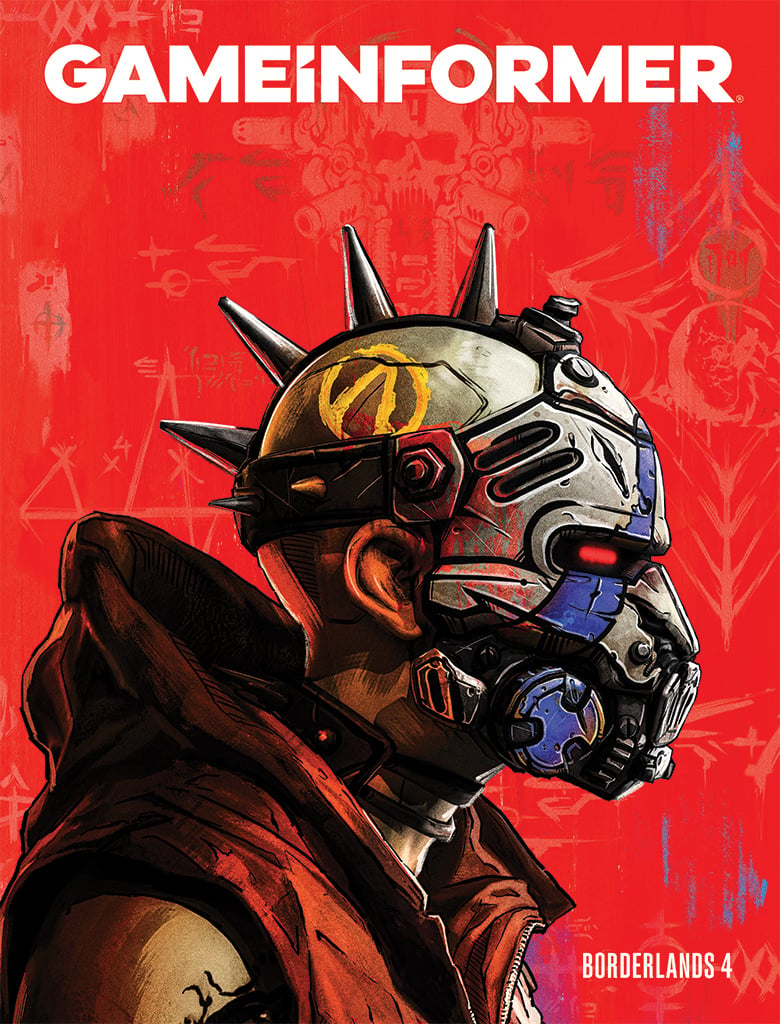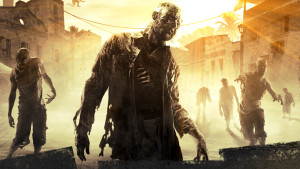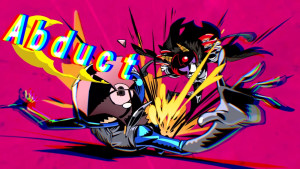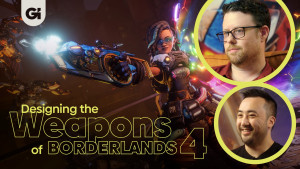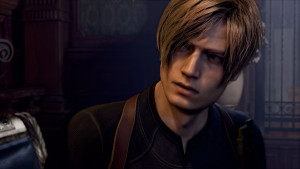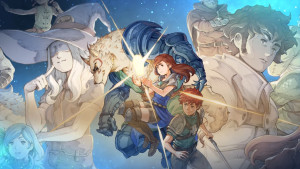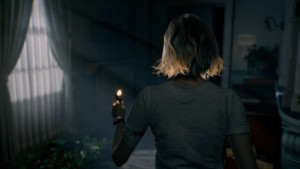Last chance to get your Borderlands 4 issue when ordered by July 1st. Subscribe Now!
The Virtual Life – A Serious Talk About Death In Video Games
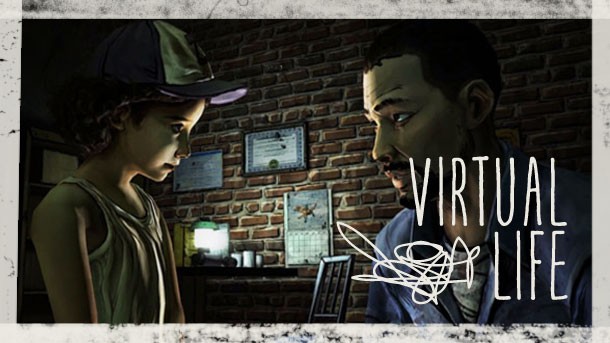
The Virtual Life is a column dedicated to exploring the place where our lives and games intersect. As the medium continues its evolution, we’ll be here to chart that line and talk about life, love, games, and the universe every other week. We like doing things our own way here at GI, so we’re going to kick off the birth of this column by talking about death. Just so you know, this week I’m gabbing about the first season of The Walking Dead and Wolfenstein: The New Order, so spoilers for those if you haven’t played them yet.
My grandfather died a few months back. He was one of the salt of the earth types. Worked as a welder for most of his life until his body wouldn’t let him anymore. He passed while I was a thousand miles away, writing words about why you shouldn’t play a bad Assassin’s Creed spin-off. Like Vonnegut said, I guess: “So it goes.”
Death’s been on my mind a lot since then, mostly the indifference that will settle on my inevitable but hopefully-very-far-into-the-future-demise. It’s scary to think about the end, this idea one day all that remains of you will be dust and any memory of who you were will fade from existence. Perhaps it’s a silly fear in the large scheme of things given that dying is a natural part of life, but the anxiety is there in the back of my mind, snickering and poking at me, no matter how much I try to busy myself with work or passion projects.
Death in games has fascinated me for a long time, mostly because it’s usually treated as more of an inconvenience than anything else — for completely understandable reasons. It would be frustrating, for example, never to be able to boot up Fallout 4 or Call of Duty again once your character got struck down by an enemy’s bullet. It would also be kind of a bummer, albeit interesting, if your character suffered huge amounts of guilt and had a breakdown after a mission where they mowed down a squad of soldiers. The majority of high-budget games where death is a factor in some shape or form are content to make it a non-issue and gamers, including me, are just as often pleased that it’s not that big of a deal. We want our escapist action fantasies that crib hard from summer blockbusters. We want slo-mo headshots on goon after goon. We want to play badass assassin warriors capable of slicing up a dude with a katana and then throwing his buddy through a window with telekinesis (no, really, someone make me this game please).
Sometimes though, it’s refreshing to play a game where the fear of death is tangible. I’m not talking about a series of cutscenes in Mass Effect where characters talk about how the forces of good have to prevent the end of civilization because the fate of humanity is at stake. I mean games that treat death as something other than light slap on the wrist or obvious plot stake, the ones that make you absolutely dread perishing in them.

Roguelikes, like FTL, The Binding of Isaac, and Spelunky make dying more interesting on a mechanical level by turning it into something more than a minor inconvenience: a major one. Losing in those games is devastating in a practical sense because every item or power-up you’ve earned in a run, the stuff you’ve gone to great lengths to secure, is just gone. And you can’t even say you’ve memorized levels since all those games are randomized, so you only keep whatever lessons you learned about the game’s mechanics. It’s invaluable information, of course, but it’s hard to be appreciative of that when every material gain you’ve made has been sucked into a void that sprung out of your failure. While the fear of dying is certainly present in the systems of roguelikes, I find myself drawn even more strongly to games that use death as a way to prey on your emotions. Sure, it’s manipulative, maybe even a teensy bit mean on the part of the developers when characters we’ve come to invest in are suddenly ripped away but it’s also pretty special in a way — a twisted, barbed-wire gift dropkicked straight into our hearts.
I still think about Lee Everett’s death in The Walking Dead all the time. I think about how well-designed and poignant it is. Sure, we get to have the big scene the final two episodes of the first season have been building to: Lee’s drawn-out and tragic goodbye to Clementine. But more than that, we also get to help him part with a final lesson to Clementine before passing, teaching her how to survive one last time in the post-apocalypse. It’s not just clever because it has us essentially guiding another character through the tutorial we played through at the beginning of the season, but also because it lets Lee’s final action be one of love and kindness; it’s an act of defiance in face of cruel existence. This scene offers a powerful combination of pessimism and optimism, implicitly arguing that all we have in the face of an indifferent universe is each other.
Other game deaths reign in my mind as well. I’ve suffered surprising amounts of guilt over the loss of soldiers in the Fire Emblem games because I made a bad choice, feeling the sting of my negligence as one of my favorite characters became a widow. I shouted in dismay when I unwittingly led one of Until Dawn’s best character, someone I had come to care about after hating initially, to her gruesome demise. However, perhaps the most interesting approach to death in a game for me isn’t actually a death scene, but instead a philosophical exchange in Wolfenstein: The New Order about death as a concept between two people with dramatically different beliefs that have been reinforced by war trauma. One sees the tragic aftermath of said war as a call for justice, a need for a righteous crusade against the cruelty of man in the name of the soul, while the other has come to view people as “machines of biology” functioning in a life void of meaning. Uncomfortably, and truthfully, The New Order doesn’t present either view as the right one. Nobody has all the answers no matter how much they want to believe it. We’re all just kind of drifting here, rationalizing it, trying to make the best of our existence in whatever way we can.
None of this is to say that games that approach the subject of death in interesting ways are better than something that gleefully lets you rack up a bodycount with a wide assortment of creatively designed weapons. Instead, like with books and movies that take a nuanced and honest approach to the subject, I find solace in video games that present death as something to be feared. Games are the creations of human beings, after all, and one of the most comforting experiences is to take in a piece of art by someone (or someones) who clearly has the same fears as you and is making some kind expression out of those fears, whether it’s worrying about finding the right person or finding meaning in the time each of us is given in this life. If nothing else, it makes existence just a little less lonely.
What are some games that have handled death in interesting ways? Let us know in the comments below!

